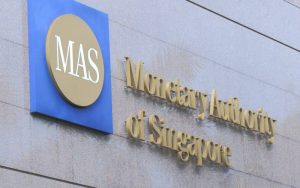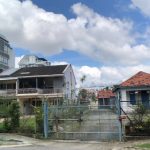MAS Expands Mandate of Industry Steering Committee to Drive SIBOR Transition
The Monetary Authority of Singapore (MAS) announced on 11 December that the mandate of the Steering Committee for SOR Transition to SORA (Committee) will be expanded to enable it to oversee the interest rate benchmark transition from SIBOR to SORA.
This follows a joint industry report published today announcing the discontinuation of the remaining SIBOR tenors in phases over the next four years. The Committee will be renamed as the Steering Committee for SOR & SIBOR Transition to SORA (SC-STS).
Comprising senior representatives from key banks in Singapore, relevant industry associations, and MAS, the Committee was established by MAS in August 2019 to oversee the SOR transition to SORA, and is chaired by Mr Samuel Tsien, Group CEO of OCBC Bank and Chairman of The Association of Banks in Singapore (ABS).
In its expanded role, the SC-STS will also be responsible for providing strategic direction on SIBOR transition to SORA, and oversee its smooth implementation.
Table of Contents
SIBOR is a key interest rate benchmark in Singapore that is widely used in retail mortgages and corporate loans. In July 2020, ABS, the Singapore Foreign Exchange Market Committee (SFEMC), and the SC-STS published its recommendations to discontinue SIBOR, and to shift to the use of SORA as the main interest rate benchmark for SGD financial markets.
The industry on 12 December, published a response to the feedback received noting strong support from bank and non-bank respondents, and setting out the key timelines for SIBOR transition and discontinuation by end-2024.
The Association of Banks in Singapore (“ABS”), the Singapore Foreign Exchange Market Committee (“SFEMC”), and the Steering Committee for SOR Transition to SORA (“SC-STS”) in July issued a consultation report (“Report”), titled SIBOR Reform and the Future Landscape of SGD Interest Rate Benchmarks.
The Report recommends the discontinuation of the SGD Singapore Interbank Offered Rate (“SIBOR”) in three to four years, and a shift to the use of the Singapore Overnight Rate Average (“SORA”) as the main interest rate benchmark for SGD financial markets. This shift will support the deepening of SORA markets, result in more transparent loan market pricing for borrowers, and more efficient risk management for lenders.
Arising from global efforts on interest rate benchmark reform, ABS and SFEMC earlier initiated a reform of SIBOR and an industry transition from SOR to SORA.
ABS and SFEMC consulted on a new waterfall methodology for SIBOR in December 2017, and transitional testing was conducted from July 2019 to June 2020 to validate this new methodology. Under this new methodology, the underlying market for SIBOR was expanded beyond the term unsecured interbank funding market, to include wholesale funding transactions, such as large-sized corporate deposits.
Concurrently, SORA was identified in August 2019 as the replacement interest rate benchmark to the SGD Swap Offer Rate (“SOR”), which will be discontinued together with the USD LIBOR benchmark after end-2021 . Over the past 6 months, the SC-STS has made good progress in developing SORA markets. This includes establishing key SORA market conventions and infrastructure, enhancing industry and system readiness, and piloting new SORA products that cater to customers’ needs.
UK authorities have highlighted that it would not persuade or oblige panel banks to remain on the LIBOR panel after end-2021. As SOR relies on USD LIBOR in its computation methodology, the likely discontinuation of LIBOR after end-2021 directly impacts the future sustainability of SOR.
The SIBOR transitional testing showed that while the resulting rate – termed the New Polled Benchmark – was relatively robust, it displayed noticeable differences in volatility and levels compared to SIBOR. This posed two issues: (a) the more volatile nature of the New Polled Benchmark would make it more difficult for end-user acceptance, and (b) the different characteristics of the New Polled Benchmark will mean that it cannot directly replace SIBOR in existing financial contracts.
Hence, the Report assessed that, rather than implementing two transitions to separate interest rate benchmarks (i.e. SOR-to-SORA, SIBOR-to-New Polled Benchmark), it will be beneficial in the long run for SGD financial markets to shift to a SORA centered SGD interest rate market (“SORA-centered approach”). This will avoid market fragmentation, facilitate transparency and easier comparison of loan pricing, and promote the development of deep and efficient SGD financial markets.
To ensure a smooth transition for existing SIBOR users, the Report proposes for the transition to be done in a phased approach. Transition of contracts referencing the more widely-used 1M and 3M SIBOR will take place after the industry has substantially completed the transition from SOR to SORA.
Thus, 1M and 3M SIBOR will only be discontinued in three to four years, to provide sufficient time for the transition of existing SIBOR contracts.
The 12M SIBOR will be discontinued by end-2020 as earlier announced by ABS, while the Report proposes to discontinue the 6M SIBOR when or shortly after the 6M SOR is discontinued after end-2021. Currently, 6M SIBOR is relied upon in the methodological fallback of 6M SOR. The discontinuation of 6M and 12M SIBOR is not expected to impact many customers given low market usage of these rates.
Mr Paul Ho, chief mortgage officer at iCompareLoan, said: “the Sibor transition to a SORA-centered approach will be paced. The smooth transition is an important step forward by the industry that will enhance liquidity and improve the overall functioning of SGD interest rate markets.”
He added, “The SORA-approach should be deeper, more efficient market, and provide greater transparency than then Sibor / SOR approaches that is widely being used now.”







